Biotechnology
Improving on nature
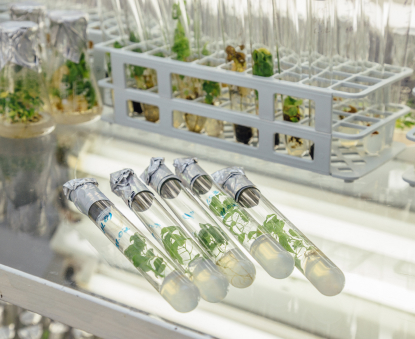
TRANSFORMATION
The ability to introduce new DNA into the genome of plants created a powerful new tool for crop improvement. It is enabling crop plants to be equipped with new capabilities that go beyond what can be achieved with conventional breeding and mutagenesis to address production challenges and to create new products that better meet the requirements of evolving food and industrial markets.
The process of introducing new DNA into plants is referred to as transformation, and there are two main methods. The biolistic method involves the required genes being coated on fine particles and bombarded by a ‘gene-gun’ into the plant cells or protoplasts (cells that have had their tough cell wall removed). Alternatively, the genes can be incorporated into a plasmid vector derived from Agrobacterium tumefaciens that can enter the plant cell and transfer its DNA directly into the nuclear genome – this is known as Agrobacterium-mediated transformation.
Both techniques require in vitro propagation of the plant tissue, and the regeneration of whole plants from the cells that become transformed with the new DNA. The transformed cells are identified by the inclusion of a selectable marker gene in the introduced genetic construct. Application of the selection agent, such as an antibiotic or herbicide, kills off all the untransformed cells and enables regeneration only from transformed cells. By careful genetic analysis of the subsequent progeny, ‘elite events’ are eventually selected that carry discrete copies of the entire genetic construct integrated into the genome at locations that don’t interfere with the plant’s own genes.
Plants developed by transformation are regarded as GMOs (genetically modified organisms) and need to receive regulatory approval before they can be released into the environment either for research or commercial use.
The fact that most commercial oilseed crops are readily amenable to genetic transformation has enabled early applications of gene technology to these oil production systems. Initial applications were focussed on improving their field performance and productivity. GM oil crops (soybean, canola, and cottonseed) that are tolerant to environmentally-friendly herbicides, and resistant to leaf-chewing insects have been developed and are now widely grown. They currently account for about half of all global oilseed production.
Oil crops that have been genetically transformed to produce improved oil products are now being developed and are beginning to enter commercial production.
<-- More Biotechnology -->
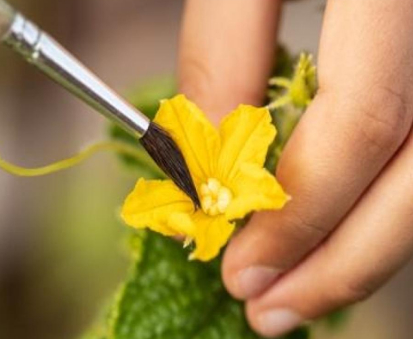
PLANT BREEDING
Conventional plant breeding involves controlled pollination followed by generations of selection within progeny for desired combinations of traits.
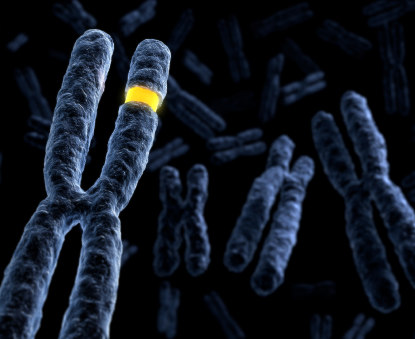
MUTAGENESIS
Where natural variation is insufficient to achieve the desired trait, mutagenic treatments may be used to create additional genetic variation.

TRANSFORMATION
New DNA can be introduced to create GM plants with desired genetic traits, using either biolistics (gene-gun) or Agrobacterium transformation.

GENE SILENCING
A targeted gene can be ‘silenced’ by introducing a construct that triggers degradation of the gene’s message, preventing its translation into protein.
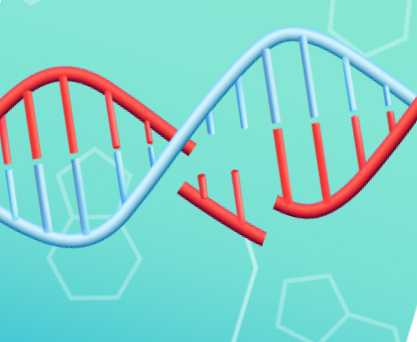
GENE EDITING
Genes can be enhanced or inactivated by using ‘molecular scissors’ to replace or remove short sequences of DNA at highly specific locations.
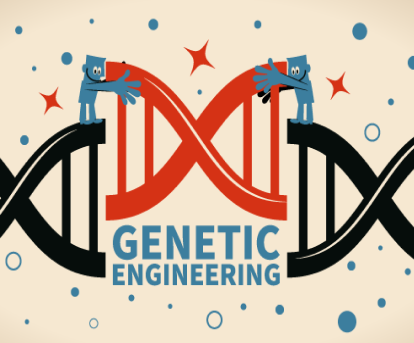
GENE ADDITION
Plants can be engineered to make new products by incorporating novel gene sets that encode specific enzymes or entire metabolic pathways.

